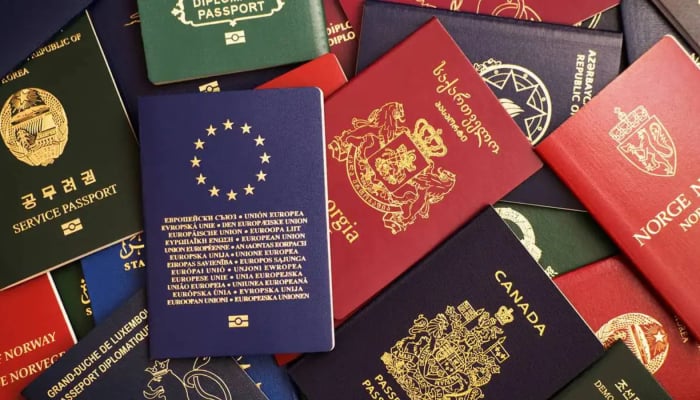Islamabad, Mar 20, 2025: Singapore starts the new year on a high note, reclaiming its position as the world’s most powerful passport in the latest Henley Passport Index.
With visa-free access to 195 out of 227 destinations, Singaporean passport holders enjoy the highest level of global mobility.
Global Passport Rankings: Who Leads in 2025?
Japan takes second place with visa-free entry to 193 destinations, making a strong comeback after regaining access to China post-pandemic.
The third position is shared by France, Germany, Italy, Spain, Finland, and South Korea, each allowing seamless travel to 192 locations.
Meanwhile, Austria, Denmark, Ireland, Luxembourg, the Netherlands, Norway, and Sweden hold fourth place with access to 191 destinations.
Securing the fifth spot, Belgium, New Zealand, Portugal, Switzerland, and the United Kingdom provide visa-free travel to 190 destinations.
Notably, the UK has implemented new entry requirements for travelers from 48 countries, necessitating prior authorization before arrival.
Read More:
Saudi Riyal to PKR Rate Today – 20 March 2025 Update
The Widening Gap in Global Mobility
The Henley Passport Index, which has been tracking global travel freedom for two decades, highlights the stark contrast between the most and least powerful passports.
Afghanistan remains at the bottom of the list at 106th place, with visa-free access to just 26 destinations—two fewer than last year.
Syria and Iraq follow closely, with access to 27 and 31 destinations, respectively.
As global mobility continues to evolve, political instability, environmental changes, and economic factors significantly impact passport rankings.
Henley & Partners Chairman Christian H. Kaelin emphasizes the need to rethink citizenship privileges, especially as conflicts and climate-related displacements reshape migration trends worldwide.
Major Climbers and Decliners
European nations dominate the top 10, but other countries are making significant strides. Australia and Greece tie for sixth place, while Malta, Poland, and Canada rank seventh.
Hungary, Czechia, the United States, and Estonia share the ninth position, while Lithuania, Latvia, Slovenia, and the UAE complete the top 10 with access to 185 destinations.
The UAE stands out as one of the fastest risers, climbing 32 places since 2015.
China also demonstrates significant improvement, moving from 94th place in 2015 to 60th in 2025.
Meanwhile, some countries have seen a decline.
The U.S. has dropped from second to ninth place, while Canada has slipped three spots in the last decade. Venezuela and the UK have also faced downgrades in global mobility rankings.
The World’s Most Powerful Passports in 2025
- Singapore (195 destinations)
- Japan (193)
- France, Germany, Italy, Spain, Finland, South Korea (192)
- Austria, Denmark, Ireland, Luxembourg, Netherlands, Sweden, Norway (191)
- Belgium, New Zealand, Portugal, Switzerland, United Kingdom (190)
- Greece, Australia (189)
- Canada, Poland, Malta (188)
- Hungary, Czechia (187)
- Estonia, United States (186)
- Lithuania, Latvia, Slovenia, United Arab Emirates (185)
As travel patterns shift, passport power will continue to fluctuate, influencing international mobility and opportunities worldwide.
The growing gap in global travel freedom underscores the importance of diplomatic relations and strategic policies in shaping a country’s passport strength.









